OP-ED
Disinformation in a time of Covid-19: Weekly Trends in South Africa
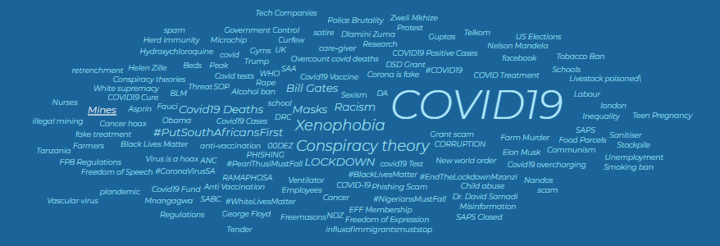
A crisis such as the Covid-19 pandemic creates a perfect opportunity for those who wish to cause confusion, chaos, and public harm; mis- and disinformation enable them to do just that. Another week, more complaints from the fruitcakes, the nasty and the evil. Like the virus, we may win big battles, but the war is far from over.
This week, a look at xenophobia and Real411
The intentional sharing of false, inaccurate or misleading information designed, presented, and promoted online to intentionally cause public harm, commonly known as “Disinformation”, is a complex issue. Disinformation, and the sharing of it, is not a new phenomenon, but the spread, access to it, and reliance on it, seems to have spiked in recent years. This has already had a detrimental impact on functional democracies and has proven just how critical credible news sources are.
It is said that crises amplify existing challenges and expose existing pitfalls, and we have seen this with disinformation. Disinformation during a time of crisis is particularly dangerous, not only to our individual (and collective) health, but to the very core of what we stand for as a democracy. Using the Real411 platform we have analysed disinformation trends which have largely focused on Covid-19. The table below shows the number of complaints received, as well as of those complaints, the number ruled as disinformation.
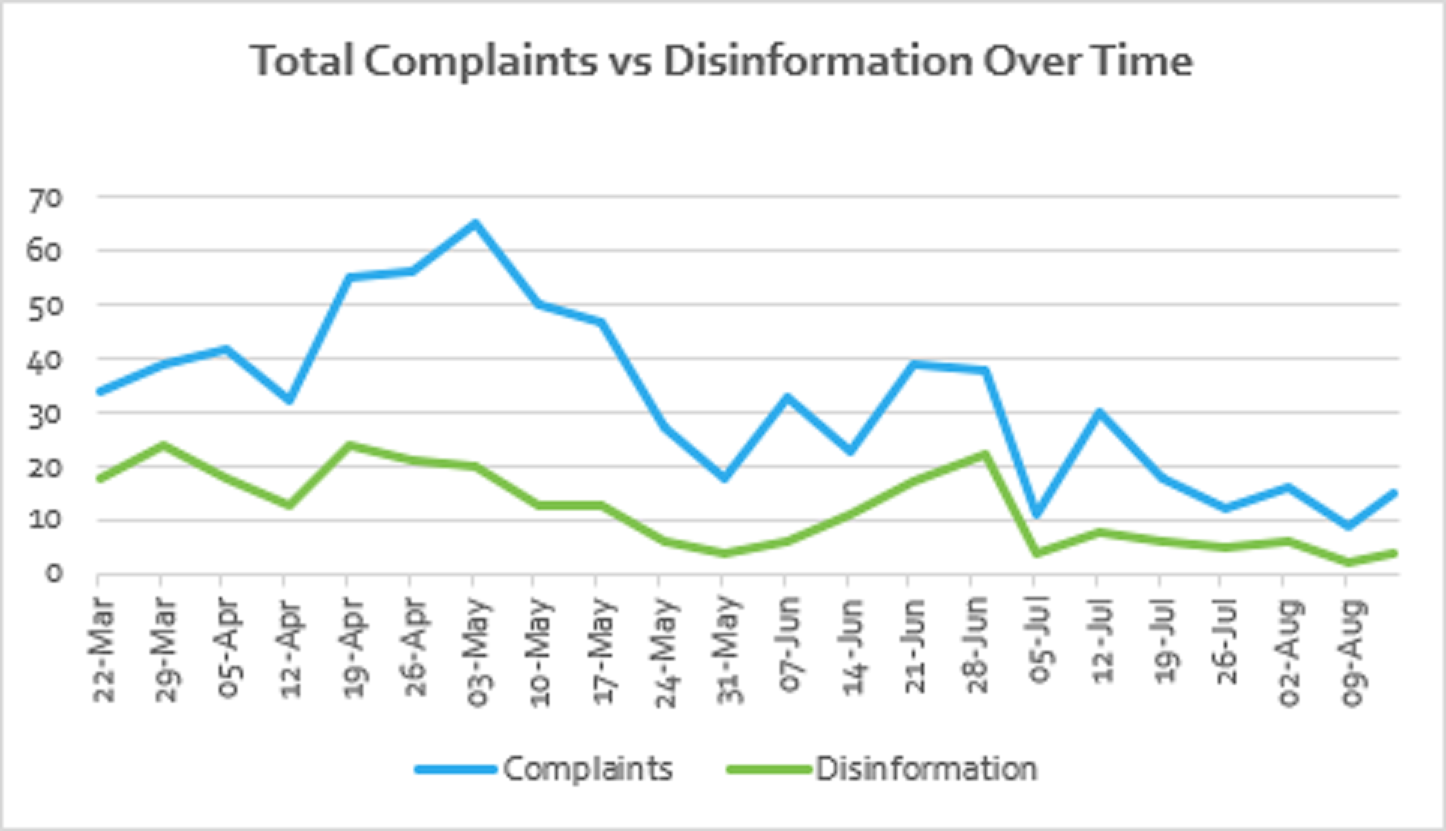
Over the last 11 weeks, Media Monitoring Africa has provided weekly insights of the trends in disinformation complaints we have received on the platform. This week, we will start looking at some of the themes we have seen during the same period. The Real411 platform accepts complaints related to disinformation as well as to hate speech, incitement to violence, and the harassment of journalists online. Recently, we have seen a spike in complaints about xenophobic content. Given the increase in xenophobic content online, we take a look at some of the trends we have seen since the end of March.
Over the last few months, we have seen an increase in the number of complaints which have also used #putsouthafricansfirst. This piece by Kyle Findlay helps unpack some of the trends on twitter. Broadly speaking, we should welcome diverse political views that diverge from our own, and a conservative approach is common in many parts of the world. Where such views, however, become problematic is when they seek to push an agenda that embraces xenophobia and racism. It’s bad enough spewing a general anti-foreigner discourse, it’s even more problematic and threatening when it is directed at specific people. These recent tweets are examples of xenophobia directed at SABC journalists.
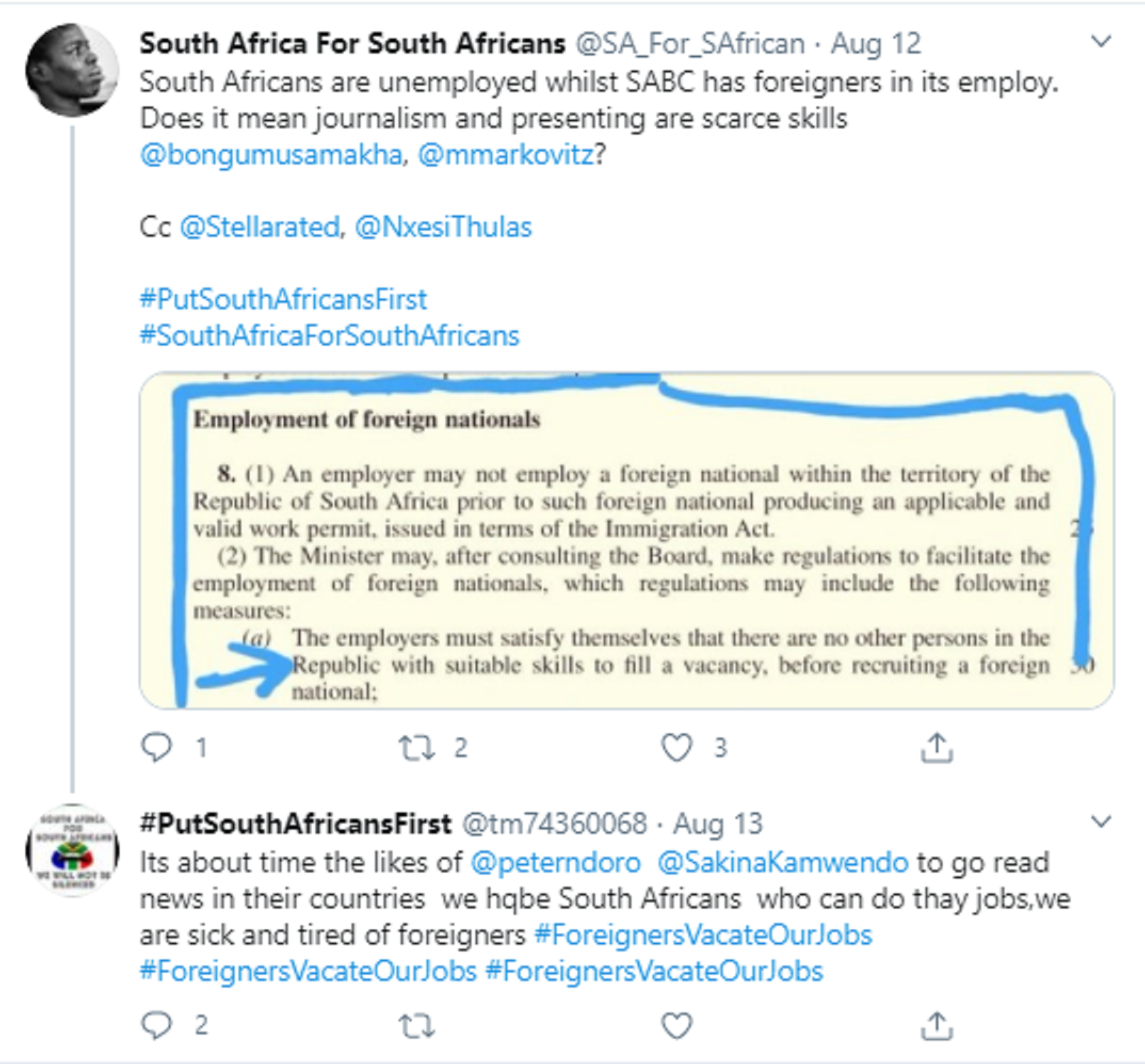
https://twitter.com/tm74360068/status/1293787279086018560?s=11
In addressing issues like racism and xenophobia, it’s important to consider that xenophobic content does not necessarily make it hate speech. The Real411 system uses the following criteria to determine whether content is hate speech:
- There has been advocacy of hatred against another person;
- It is based on one or more prohibited grounds, including race, ethnicity, gender or religion;
- It constitutes incitement to cause harm; and
It does not constitute bona fide engagement in artistic creativity, academic and scientific inquiry, fair and accurate reporting in the public interest or publication of any information, advertisement or notice in accordance with Section 16 of the Constitution.
While the damage and hurt of racism and xenophobia is real, and potentially just as serious, it doesn’t necessarily constitute hate speech. Thus the xenophobia directed at Peter Ndoro and Sakina Kamwendo might not be hate speech as there is no clear incitement to harm, but it doesn’t make it any less repugnant.
What is concerning is the general silence about this kind of xenophobia. We see that it is being tacitly supported by public figures like Herman Mashaba. What xenophobic people tend to forget is that like racism, it doesn’t just violate the dignity of the person who is being targeted but also the humanity of the person who uses it. Those who use it for political ends are undermining the very democracy they seek to use to gain power.
The selected complaints below are a few of the examples of xenophobic content circulating on digital platforms over the last few weeks.
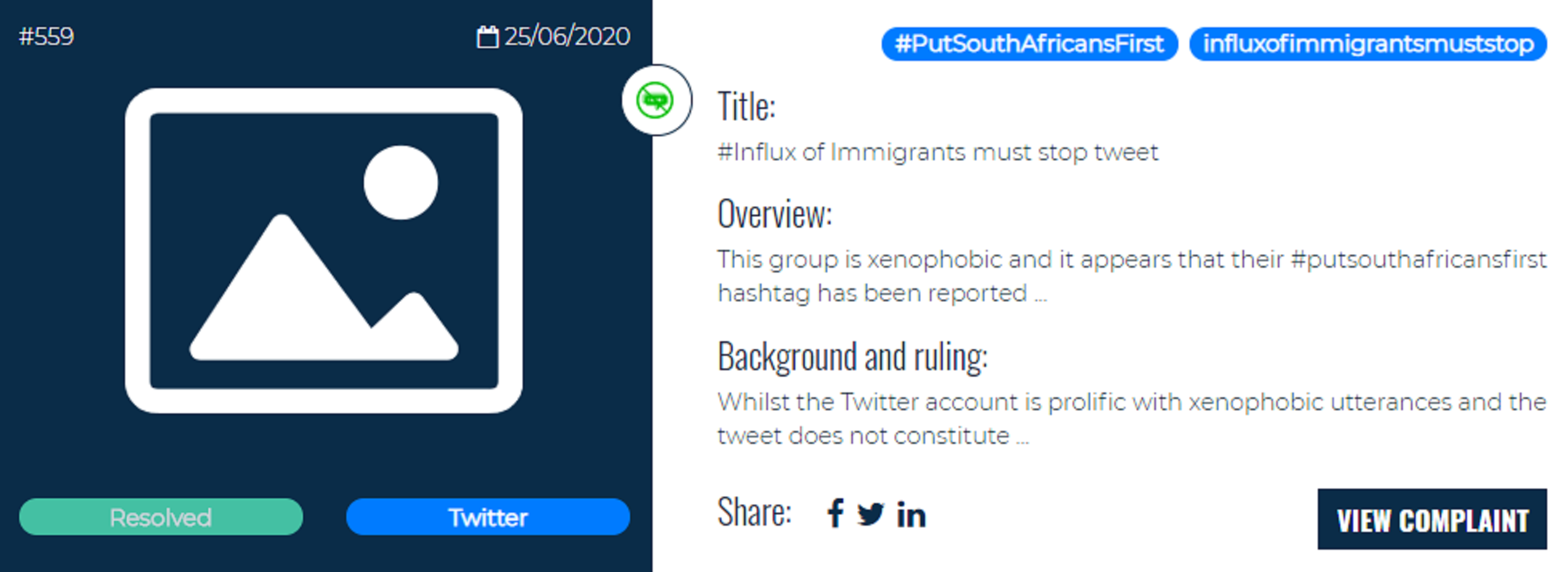
The complaint was registered about the #putsouthafricansfirst – a group set up to push the xenophobic agenda. Given how poor our economic outlook is and how many people are losing their jobs, sentiments like these often resonate. Like disinformation, racism and xenophobia increase in times of extreme stress and anxiety.
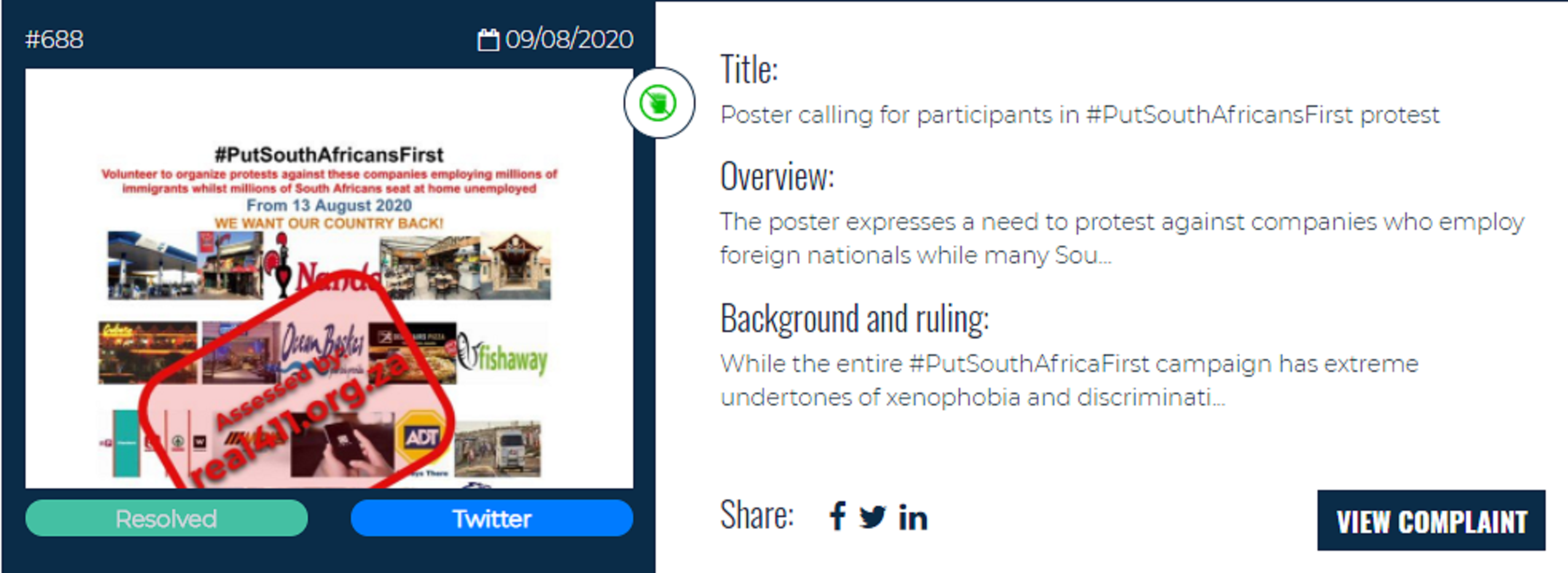

688 and 670 are typical examples of content that promotes xenophobic attitudes, and how they are then linked to other existing challenges. In 688, the xenophobia is linked to the stereotype of how foreigners are taking local jobs, and seeks to inspire action against companies that are employing non-South Africans. In 670, we see how xenophobia is used to indirectly link foreigners to criminality. The post implies that like the corruption and theft of the ANC, general lawlessness and disorder is following with the arrival of foreigners. These tactics are nothing new and have been used by people like Donald Trump in his 2016 election campaign.


Complaints 592 and 665 are examples of how xenophobia is used to incite violence. In 665 we see the idea being put forward that Hillbrow should be burnt down, so that illegal foreigners can be made homeless. It links the idea that all foreigners and people living in Hillbrow are “illegal” and in doing so links them to criminality. In casually suggesting that Hillbrow should be burnt down to make them all homeless, it not only incites a violent response, it also dehumanises the non-South African nationals. In 592, there is a suggestion that there is an abnormal influx of non-South African nationals and that people needed to respond by meeting and then ordering them all to leave. Again, these are not new techniques. President Trump used false narratives of an influx of foreigners in his 2016 campaign.
Racism and xenophobia are clearly proliferating on social media. While the specific posts might not constitute hate speech they are, as a pattern, indicative of common trends that occur in the run-up to high levels of violence. We have active efforts to dehumanise, to link non-South African nationals to crime and lawlessness, and to a sense that our nation will be overwhelmed.
As we navigate our way through the Covid0-19 crisis and emerge into a deeper economic crisis of the legitimacy of our government, we also have to guard against the rise of racism and xenophobia. As much as we need to ensure we protect and promote freedom of expression, we also have to find positive ways of combating racism and xenophobia. In addition to Real411 helping to expose instances, we are also working on other mechanisms.
Watch this space. DM
William Bird is director of Media Monitoring Africa, Thandi Smith is Head of Programmes at Media Monitoring Africa.
"Information pertaining to Covid-19, vaccines, how to control the spread of the virus and potential treatments is ever-changing. Under the South African Disaster Management Act Regulation 11(5)(c) it is prohibited to publish information through any medium with the intention to deceive people on government measures to address COVID-19. We are therefore disabling the comment section on this article in order to protect both the commenting member and ourselves from potential liability. Should you have additional information that you think we should know, please email [email protected]"





 Become an Insider
Become an Insider